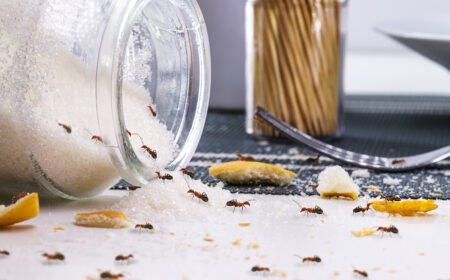Packing kitchen items for a move means organizing and securing everything safely. Start by sorting utensils, appliances, dishes, and food. Wrap them up and pack them into boxes carefully. The goal is to avoid breakage and make unpacking easier at your new place. Typically, people pack non-essentials first and save daily items for last.
Packing kitchen stuff correctly can make moving less stressful. It helps ensure your fragile items get there in one piece, saving you from buying new ones. Plus, knowing where everything is makes setting up the new kitchen smoother. A good packing plan keeps things orderly during the move.
Here are some tips on packing kitchen supplies when relocating.
Get the Right Supplies
Before you start packing, double-check that you have everything you need. You’ll want strong boxes, packing paper, bubble wrap, and tape. Having the proper materials ready will save you time and help keep your kitchen items safe during the move. It’s wise to get boxes in various sizes; big boxes are good for lighter stuff, while small boxes work well for heavier things like dishes and glassware.
You’ll also need markers or labels. To make unpacking smoother, label each box with its contents and the room it should go in. Be sure to mark fragile items clearly so everyone knows how to handle them carefully when transporting to storage units or portable storage containers.
Handle Dishes and Glassware with Care
Your kitchen’s dishes and glassware are some of the most fragile items, so it’s crucial to pack them with care. Begin by wrapping each plate, bowl, and glass individually with packing paper or bubble wrap. This extra layer helps protect them and lowers the chance of breaking during the move.
After wrapping, place plates upright in the box like vinyl records. This way, there’s less pressure on them. For glasses, try placing them rim-side down to avoid too much weight on the delicate edge. Fill empty spaces in the box with crumpled packing paper to keep everything from shifting around.
Handle Pots, Pans, and Lids Efficiently
Packing pots and pans is easier since they’re not too delicate, but they still need some care. To save space, stack them inside each other and place some packing paper between them to avoid scratches. Wrap any glass lids in bubble wrap or packing paper and pack them separately to keep them from breaking.
Use bigger pots or pans to hold smaller kitchen items like utensils or spices. Make sure everything inside is wrapped well and secure so nothing gets damaged during the move.
Sort and Pack Utensils
Organizing utensils before you pack them makes everything easier. Keep similar items together. Put spoons with spoons and spatulas with spatulas. For small things like forks and knives, gather them in groups and wrap them in packing paper to keep them orderly.
Larger utensils, such as ladles or tongs, can go in the same box as your pots or pans. Be sure they are secure and not sticking out to avoid any damage or injuries. Packing neatly will help when you unpack and set up your kitchen later.
Take Care of Small Appliances
Treat small appliances like blenders, toasters, and mixers with care. First, unplug and clean each one to prepare it for the move. If you have the original boxes, use them. If not, find a strong box and wrap each appliance in bubble wrap or packing paper.
Take out any loose parts, like blender blades or toaster trays, and wrap them separately. Place the appliance in the box and fill any gaps with crumpled packing paper or soft towels for cushioning. Label the box carefully so you know it needs gentle handling.
Pack Pantry Items Properly
Packing pantry items may look easy, but some tips can help. Begin by going through your pantry and throwing out anything that has expired or is about to expire. This will lessen the amount you need to pack and make moving smoother.
For spices, oils, and dry goods, use small boxes or plastic bins to prevent leaks or spills. Tape any open containers or place them in plastic bags to avoid messes. Pack heavier stuff like canned goods in smaller boxes so they’re not as hard to lift.









